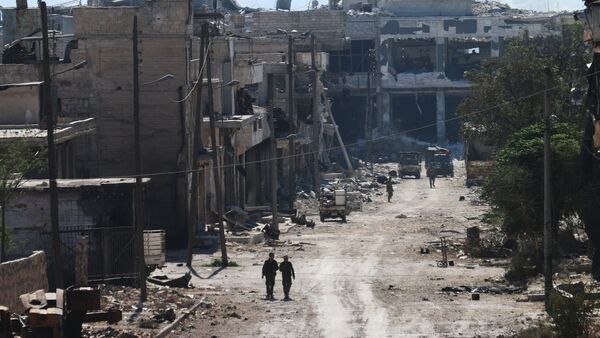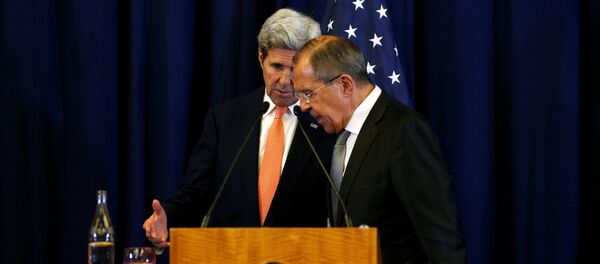On Friday, Russian Foreign Minister Sergey Lavrov and US Secretary of State John Kerry announced a new peace plan on Syria, which stipulates a nationwide ceasefire starting on September 12. The next ministerial meeting on Syria is due to be held on the sidelines of the UN General Assembly in New York on September 21.
"This ceasefire can be better than its predecessors, but I do not think it will last unless it is accompanied by binding international decisions," Bashar, who is also a member of the Kurdish National Council in Syria, said.
"We support it, but there are many details in Kerry-Lavrov deal that we don't know, as we did not receive an official copy of it," he added.
Bashar also said the new US-Russia agreement "is a prelude to creating the conditions for the start of the Geneva negotiations."
The cessation of hostilities, that entered into force on Monday, will first be set for 48 hours, with a further 48-hour extension followed by permanent implementation, if no obstacles arise.
If the new ceasefire in Syria lasts for seven days, the United States and Russia will launch the joint implementation center on distinguishing between opposition forces and terrorist groups. When the distinction is made, Moscow and Washington will coordinate their airstrikes against terrorists in the specific areas that have been agreed on. The Syrian air force, meanwhile, will operate in other areas, beyond those allocated for the Russian-US cooperation.





